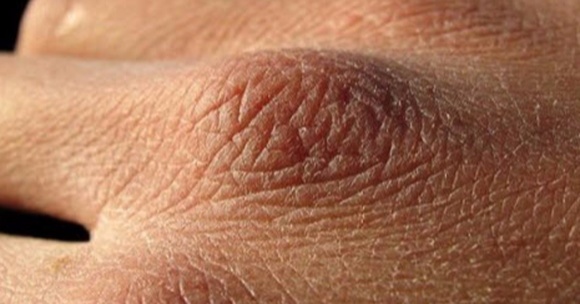The human body is primarily made up of water, a fact that shows clearly that we should be drinking water throughout the day. Every process in the body requires that we remain hydrated. Unfortunately, however, most people don’t drink enough water and some are even chronically dehydrated.
When it comes to hydration, there really isn’t a substitute for clean, clear water. Far too many people try to substitute various liquids for water, including energy drinks, caffeinated drinks and coffee. Yes, they are liquid, but they don’t hydrate as well as water and some may actually have a dehydrating effect.

Fortunately, we have a built in mechanism that lets us know when we need to drink water. Understanding the signs of dehydration can help you to see if you are low on this life-saving liquid.
1. Urination frequency
A healthy individual will urinate 6 to 7 times daily. That number is going to vary from one person to another, because we all drink various amounts of water.
If you’re only urinating 2 to 3 times per day, consider increasing your water intake. It is one way that your body tells you you’re not getting enough of it.
When you don’t drink enough water, it affects the kidneys and can lead to severe problems. Your kidneys will be unable to remove impurities from the body. Give your kidneys a hand and drink more water.
2. Dry skin
If you want a healthy complexion, make sure you are drinking plenty of water. You cannot expect to have a smooth, clear skin if you are dehydrated. Keeping your skin hydrated prevents dryness and you will be amazed with the difference you see.
If you have dry skin for a long time, it means that you are likely dehydrated and it is your body’s way of telling you to drink more water. Using creams and moisturizers may not even help when you are lacking this life saving fluid.
Drink one glass of water per hour to maintain a healthy hydration level. You will be amazed with how quickly your skin complexion will improve.
3. Headaches
If you suffer from headaches, it very well may be caused by dehydration. A headache that is induced by dehydration is different than common headaches, as they become more severe when you move about.
With a headache associated with dehydration, it is quite difficult to climb up and down the stairs, move quickly or bend down. If you have these types of headaches frequently, make sure that you start drinking more water. If you feel one coming on, down a glass of water immediately.
4. Dry mouth
A lack of saliva means a lack of water. If you have a dry mouth for an extended amount of time, you could experience damages in the oral cavity and throat.
Along with general dehydration, overuse of medication can also affect saliva production. Be sure that you have a bottle of water nearby at all times.
5. Urine color
When you have changes in your urine color, it is often a sign that you are lacking in water. When you are properly hydrated, the urine is a light yellow color but as you become dehydrated, it gets a darker, deeper yellow.
If your urine is darker, drink additional water until it is a pale yellow color. If the urine is brown, it is a sign of severe dehydration.
Be cautious that you don’t drink several glasses of water at one time. Drink your water slowly over time to help the fluids distribute properly.
6. Hunger
Feeling hungry after you have already eaten a meal is often a sign of dehydration. Be cautious that you are not confusing hunger with thirst.
Rather than reaching for a bag of chips, drink a glass of water and see if the hunger pangs subside.
7. Dizziness
If you are experiencing dizziness, it could very well be a sign that you are dehydrated and in need of water immediately.
There may also be other issues that lead to dizziness, including fluid building up in your inner ears. When you have any dizziness, drink a glass of water.
8. Chronic dehydration
There are a number of symptoms that are typically associated with chronic dehydration. Many of them may be overlooked, but it can show you that the dehydration is already at an advanced level.
